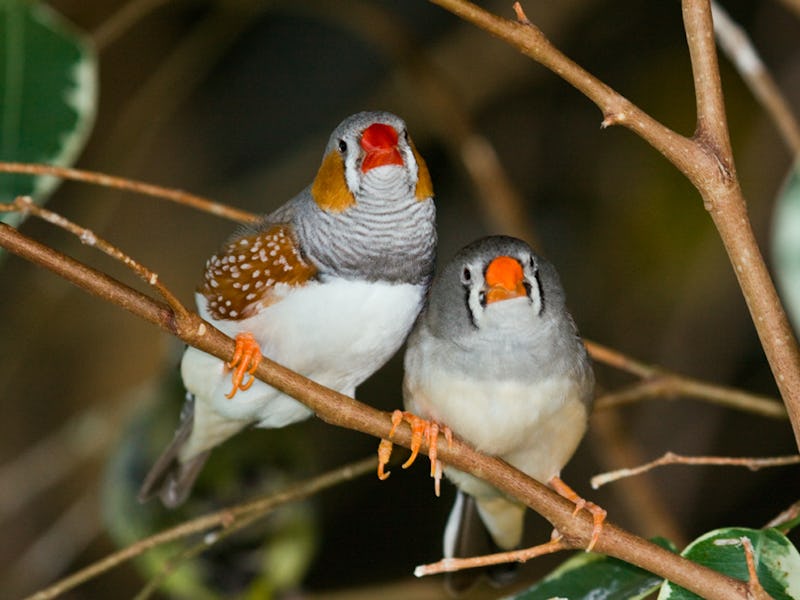Like Humans, Birds Don't Do Well in Arranged Marriages
Researchers compared relationships between birds that were placed in an arranged partnership vs. those who found a mate in the wild.

Consider the zebra finch: This young, urbane, perpetually single member of the avian world spends its youth chasing the next best thing, engaging in beaky flirtations and ghosting feathered potential mates, all before finally settling down for life of domestic partnership. Of course they love speed dating.
So we learn from the Max Planck Institute for Ornithology in Seewiesen, Germany, where researchers compared the outcomes between birds that were placed in an arranged partnership against those who found a mate in the wild.
First, the researchers set about match-making for 160 bachelors, introducing groups of 20 males to 20 females for quick meet-and-greets. Meanwhile, the free birds would instead pair off as nature intended: The males sang courtship songs to groups of females until they found a match and built a nest (and had children and grew old and died together). When a zebra finch is in, a finch is all in.
Here’s the twist: Instead of letting the birds stick to the pairs they met in the whirlwind dating round, the researchers yanked half the pairs apart.
You can guess what happened next: The birds that picked each other in the wild had successful families at a 37 percent higher rate than the arranged parternships. They produced fewer hatched eggs, and their chicks were healthier. The males were less likely to screw around with other birds, the females were more interested in romance.